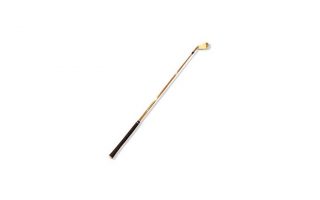London Gold Market Report
London Gold Market Report
by Ben Traynor
Monday 11 March 2013, 08:30 EST
Gold Flat in “Uneventful” Market, US Recovery “Could Be Bearish” But “Economists Expect Ongoing Fed Support”
U.S. DOLLAR gold prices continued to hover around $1580 an ounce Monday morning, in line with last week’s trading, while silver dipped back below $29 an ounce after making slight gains in Asian trading.
Sterling and Euro gold prices were also flat, hovering around £1060 and €1215 an ounce respectively.
“[Last week] was a relatively uneventful week for gold,” says a note from precious metals refiner Heraeus, citing a lack of “impulses to influence the metal”.
European stock markets ticked lower this morning with the exception of the FTSE, following Friday’s announcement by ratings agency Fitch that it has downgraded Italy by one notch to BBB+.
On the currency markets the Euro hovered around $1.30 against the Dollar this morning, after dropping 1.4% Friday following the release of better-than-expected US jobs data and the Italy downgrade news.
Friday’s US nonfarm payroll report showed 236,000 jobs added last month, while the unemployment rate fell from 7.9% to 7.7%.
“Gold prices have built in the view that the US recovery is on a good footing,” says Societe Generale commodity strategist Jeremy Friesen, “and by the end of the year we should see the Fed exiting the stimulus, which should be bearish for gold.”
January’s nonfarms figure however was revised lower to 119,000 jobs, below December’s 196,000 and the lowest figure for number of jobs added since June last year.
“This is the third time since the recession began that hiring has accelerated, only to fizzle out a few months later,” says INTL FCStone metals analyst Ed Meir.
More importantly, while the recent employment gains have been encouraging, overall employment is some three million jobs below the peak reached in January 2008…it is not surprising to see why most economists see the Fed continuing to provide the economy with support.”
The so-called speculative net long position of gold futures and options traders, calculated as the difference between bullish and bearish contracts held by hedge funds and other professional money managers, fell to its lowest reported level since December 2008 in the week ended last Tuesday, according to weekly data published Friday by the Commodity Futures Trading Commission.
Gold exchange traded funds meantime continued to see net outflows last week. The world’s largest, the SPDR Gold Trust (ticker: GLD), saw its holdings drop to their lowest level since October 2011 Friday, at 1239.7 tonnes.
“ETFs remained net sellers, although their aversion to the metal does seem to be easing,” says a note from Standard Bank.
“The week saw 21.9 tonnes liquidated from the holdings [of all ETFs tracked by Standard Bank], significantly lower than the previous week’s 56.7 tonne loss (which was a 12-month record). Total holdings are now at 2567.7 tonnes, down 152.7 tonnes since the beginning of the year.”
“[ETF] holdings remain vulnerable given prices are trading sub $1600,” adds Suki Cooper, precious metals analyst at Barclays.
“[That said,] macro uncertainty continues to linger, and gold’s safe haven appeal could return, particularly given the debt ceiling debate scheduled for May, but should investor interest continue to dwindle, physical demand and official sector appetite are likely set the floor for prices.”
Over in China, the world’s number two gold consumer, industrial production and retail sales both grew at a slower pace than analysts forecast in February, according to official data published over the weekend.
“Fixed asset investments continued to be the key driving factor[ for China’s growth],” says a note from Credit Suisse.
“This is consistent with our view of a narrow-based recovery. So far, there is no evidence that the growth momentum that has been primarily driven by local government investment projects has spilled over to other sectors…without a broader-based improvement of activities, a strong rebound of growth momentum will likely still be missing.”
Producer prices in China fell by more than expected, while by contrast consumer price inflation ticked higher to 3.2%, up from 2.0% a month earlier.
Chinese gold production meantime rose by nearly 25% to just over 30 tonnes in January, according to figures published by the China Gold Association. Data published last week show China’s net gold imports from Hong Kong that month fell to a three-month low below 30 tonnes.
Ben Traynor
Gold value calculator | Buy gold online at live prices
Editor of Gold News, the analysis and investment research site from world-leading gold ownership service BullionVault, Ben Traynor was formerly editor of the Fleet Street Letter, the UK’s longest-running investment letter. A Cambridge economics graduate, he is a professional writer and editor with a specialist interest in monetary economics. Ben can be found on Google+
(c) BullionVault 2013
Please Note: This article is to inform your thinking, not lead it. Only you can decide the best place for your money, and any decision you make will put your money at risk. Information or data included here may have already been overtaken by events – and must be verified elsewhere – should you choose to act on it.













